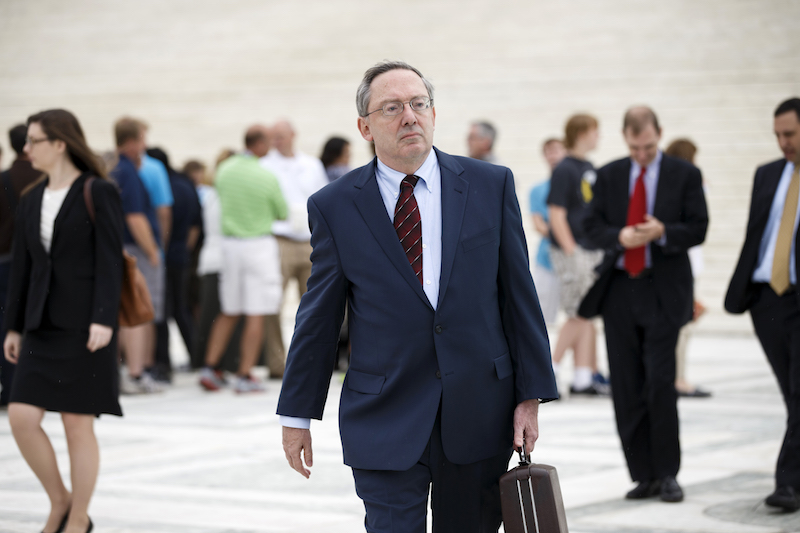Douglas Laycock (1948- ) is one of the nation’s foremost religious liberty experts and a law professor at the University of Virginia.
Laycock is a leading religious liberty expert
Laycock is not only one of the nation’s foremost academics, but he also argues religious liberty cases before the United States Supreme Court. He is known for protecting religious liberty principles from both sides of the culture war. He has advocated for same-sex couples and conservative Christians. He also has argued both free exercise and establishment clause cases before the Supreme Court.
Born in Alton, Illinois, Laycock earned his undergraduate degree from Michigan State University and his law degree from the University of Chicago Law School. In his storied academic career, he has taught at the University of Chicago Law School, the University of Texas School of Law, the University of Michigan Law School, and the University of Virginia School of Law.
Laycock has argued First Amendment cases before the Supreme Court
Laycock has argued five First Amendment or First Amendment-related cases before the Supreme Court:
- Holt v. Hobbs (2015)
- Town of Greece v. Galloway (2014)
- Hosanna Tabor Evangelical Lutheran Church v. EEOC (2012)
- City of Boerne v. Flores (1997)
- Church of Lukumi Babalu Avenue v. City of Hialeah (1993).
In three of those cases – Holt v. Hobbs, Hosanna-Tabor Evangelical Lutheran Church v. EEOC, and Church of Lukumi Babalu – he won unanimous decisions before the Supreme Court.
In Holt, the Court unanimously ruled that Arkansas prison officials violated the religious liberty rights of an inmate under the Religious Land Use and Institutionalized Persons Act by prohibiting him from wearing a short beard.
In Hosanna-Tabor, the Court unanimously ruled that the ministerial exception prevented a court from examining whether a church’s school discriminated against a former teacher.
In Lukumi, the Court ruled that a Florida city violated the free exercise clause rights of a church when it targeted the church’s animal sacrifice practices.
Laycock is vice president of the American Law Institute and a fellow of the American Academy of Arts and Sciences.
David L. Hudson, Jr. is a law professor at Belmont who publishes widely on First Amendment topics. He is the author of a 12-lecture audio course on the First Amendment entitled Freedom of Speech: Understanding the First Amendment (Now You Know Media, 2018). He also is the author of many First Amendment books, including The First Amendment: Freedom of Speech (Thomson Reuters, 2012) and Freedom of Speech: Documents Decoded (ABC-CLIO, 2017). This article was originally published in 2017.

